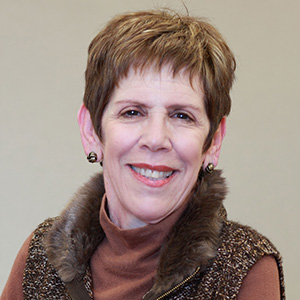Dr. Marian Spaid-Ross ’ educational journey began at a community college — Cypress College in North Orange County, Calif. — which is why she wanted to teach at a community college. “I felt there was a need to share my experiences with other older adult students to assist and support their academic and social participation as they engage in higher education,” said Spaid-Ross. With much determination, she achieved her goal at the highest level possible, by earning her Doctor of Education degree (Ed.D.) from San Diego State University.
’ educational journey began at a community college — Cypress College in North Orange County, Calif. — which is why she wanted to teach at a community college. “I felt there was a need to share my experiences with other older adult students to assist and support their academic and social participation as they engage in higher education,” said Spaid-Ross. With much determination, she achieved her goal at the highest level possible, by earning her Doctor of Education degree (Ed.D.) from San Diego State University.
Can you give us a brief history of your career trajectory?
In 2000, I took a giant leap of faith and decided to leave my employer of many years to return to college. I can remember that very moment when I received the letter of acceptance from SDSU congratulating me on being accepted as a new student. I utilized whatever funds I had saved throughout those years of working. By 2002, I received my undergraduate degree. Two years later, I was accepted to the graduate program in Sociological Practice at California State University San Marcos. By the time I graduated with my master’s, I was determined to teach at a community college. I applied to the San Diego/Imperial County Community College Association (SDICCA) Faculty Internship program in 2007, and was accepted that summer as a member of the faculty cohort. After completing the program, I was offered a teaching assignment at Palomar Community College.
What made you decide to return to graduate school?
My decision stemmed from a desire to understand and learn more about the specific needs of the older-adult college student and their process in pursuing educational and social equity. Teaching within the community college environment provided me a research opportunity to study the older-adult student’s college experience and the resources and services that contributed to their educational success.
What made you choose OLLI at SDSU for your internship?
Our doctoral program required each student to participate in an internship for a semester, and I wanted to learn more about the Osher Lifelong Learning Institute. I wanted to study the older-adult learner and their desire to pursue and engage in a lifelong learning experience.
When you were an intern at OLLI, and was your role merely to observe?
I participated in the internship during the 2014 spring semester. The experience provided me the opportunity to learn, collaborate, and build relationships with other adult learners. It allowed me to not only actively participate but also gain access to a welcoming environment that appeared to influence a sense of belonging amongst its members. I believe that my learning and growth as an older-adult learner during this experience transformed my professional role as a teacher and advocate of lifelong learning.
Additionally the internship experience provided me the opportunity to conduct a pilot focus group to determine how older-adult learners who are students of an OLLI perceived their educational and social experience as it relates to their sense of belonging. Institutions can play a significant role in developing and shaping older adult students’ identities within various student organizations.
Can you elaborate on your participation in the Marketing and Membership Committee, and the Leadership and Volunteer Opportunities Committees at OLLI?
During my participation on the Leadership and Volunteer Committee, I collaborated with other committee members to developed recruitment ideas and strategies that might encourage other members to volunteer and serve. My participation on the Marketing and Membership Committee included providing feedback on marketing ideas as well as co-presenting information about the OLLI at various community events.
How long did it take to earn your Ed.D. at SDSU? What do you find most rewarding about that accomplishment?
The Ed.D. program at SDSU is a three-year accelerated doctoral program. I was the first in our cohort this past spring semester to defend and complete my dissertation.
One of the Ed.D. program features is “students working together in cohorts to solve real problems.” What problems did you and your fellow cohorts solve?
Our cohort worked together in examining the issues of student success and college completion.
What was the topic of your dissertation?
The topic of my dissertation was A Phenomenological Study of The Older Adult Learner’s Community College Experience.
What’s next for you, career-wise, now that you have your Ed.D.?
I would love to work collaboratively with others in an Osher Institute as an Adult Learner Ombudsmen. I believe that my learning and research has allowed me to continually grow and develop as an advocate and teacher of lifelong learners who will lead, collaborate, and apply practices that will stimulate and support the adult student and their educational and social needs of the 21st century. As a scholar and researcher of lifelong learners, I will continue to advocate the need for institutional resources and services that will support the educational success of all students.
In continuing to volunteer as an OLLI Advisory Board member, and committee member, I will support faculty and staff with the various programs and services that will enrich the learning environment and experiences of adults students. Finally, my hope is to continue the research on adult learners within the lifelong learning environment in order to create and develop future curriculum that will encourage new avenues of learning, engagement, and enjoyment within Osher Institutes.